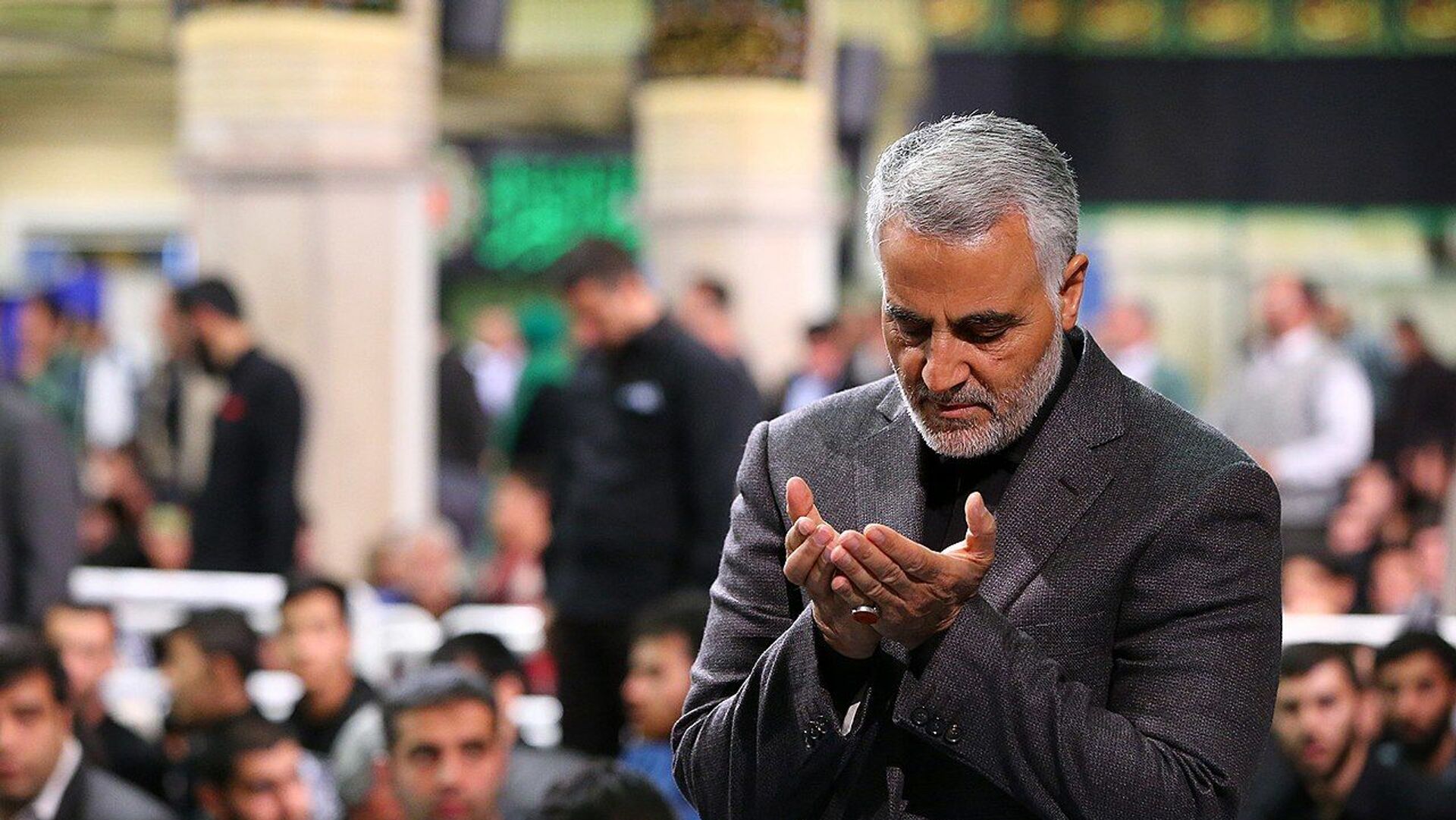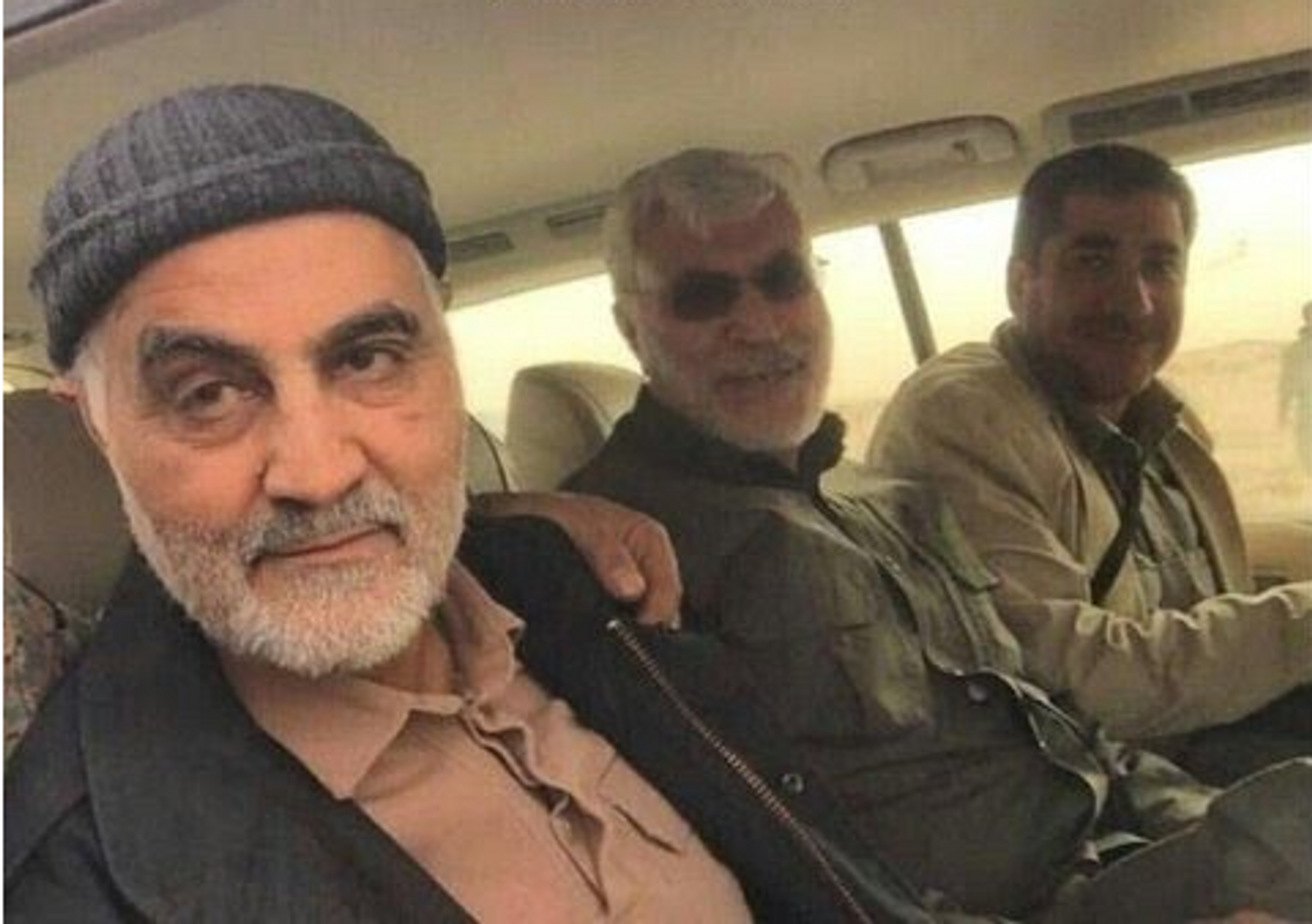IDF’s Former Intel Chief Hayman Admits Israel Was Involved in Soleimani’s Assassination
00:13 GMT 22.12.2021 (Updated: 17:25 GMT 15.01.2023)

CC BY 4.0 / Unknown author / Qasem Soleimani Saying Prayer
Subscribe
In a recent interview, a former leading Israel Defense Force (IDF) official admitted for the first time that Israel played a role in the assassination of Iranian Maj. Gen. Qasem Soleimani in Iraq, which was carried out by a US drone.
In the early morning hours of January 3, 2020, an SUV and a minivan were driving away from the tarmac at Baghdad International Airport carrying a number of dignitaries, including Soleimani and Abu Mahdi al-Muhandis, the head of the Shiita militia Kata’ib Hezbollah and deputy commander of Iraq’s Popular Mobilization Forces (PMF). However, the cars were being stalked by an MQ-9 Reaper drone owned by the US Air Force, which moments later fired a Hellfire R9X missile, destroying the SUV and killing both men.
Soleimani, commander of Iran’s elite Quds Force, was on his way to meet with Iraqi Prime Minister Adil Abdul-Mahdi to lay the groundwork for reconciliation talks with Iran’s great rival in the region, Saudi Arabia. The general commanded widespread respect in the region for his role in taking down Daesh* in Iraq and Syria, a role in which he developed a close relationship with Iraq’s PMF, but which the Trump administration claimed was used to direct those militias into working as proxy forces to attack US soldiers in the region.
Just days after the strike, NBC reported that Israeli intelligence had participated in the operation, tipping off the Americans about Soleimani’s airplane leaving Damascus airport in Syria for Baghdad. Last week, Donald Trump, who was US president at the time of the airstrike, griped in an Axios interview that he had felt pressured by Jerusalem to take the initiative on the operation.

Qasem Soleimani (left) pictured alongside Iraqi Shia militia leader Abu Mahdi al-Muhandis (center).
© Photo : Telegram / @qasemsoleimani_ir
However, the admission of participation by Maj. Gen. Tamir Hayman, former chief of the IDF's Military Intelligence Directorate, in a recent interview with Israeli media, is a first by an Israeli official.
“Assassinating Soleimani was an achievement, since our main enemy, in my eyes, are the Iranians,” Hayman said in the Kislev issue of Israel Intelligence Heritage and Commemoration Center’s quarterly journal Mabat MLM, published in November.
Hayman noted there had been “two significant and important assassinations during my term,” which ended in October.
“The first, as I’ve already recalled, is that of Qassem Soleimani - it’s rare to locate someone so senior, who is the architect of the fighting force, the strategist and the operator - it’s rare,” he said. He called the Iranian commander “the engine of the train of Iranian entrenchment” in Syria, where Israel has carried out airstrikes for years against what targets it claims are Iranian facilities preparing to attack Israel.
Hayman added that those strikes have been successful in “preventing the attempt by Iran to put down roots in Syria.”
Israel has claimed the right to attack Iran in other ways, as well, including a series of espionage operations against the country’s nuclear program, which Israel claims aims at building a nuclear weapon to attack them with. These have included sabotage, as well as assassinations like the killing of Mohsen Fakhrizadeh, a top Iranian nuclear scientist, in November 2020.
Tehran has repeatedly rejected claims that it pursues a nuclear weapon, which the country’s supreme leader, Ayatollah Ali Khamenei, ruled in 2009 is a violation of Islam’s moral strictures. Instead, Iran says it wants to use the refined uranium to fuel power plants and for use in medical research facilities, but has increased the quality and quantity of uranium it’s producing in order to pressure the United States to return to the Joint Comprehensive Plan of Action (JCPOA) nuclear deal that it unilaterally withdrew from in 2018, reimposing crushing economic sanctions against Iran.
Indeed, Hayman admitted in October that while Iran had produced large amounts of highly refined uranium, “in all other aspects of the Iranian nuclear project, we see no progress - not in the weapons project, in the financial area, not in any other sector.”
"To the best of our knowledge, the directive has not changed and they are not heading toward a breakout,” he told Israel’s Walla News. “They are not heading toward a bomb right now: It may be in the distant future."
*A terrorist group outlawed in Russia and many other countries
